
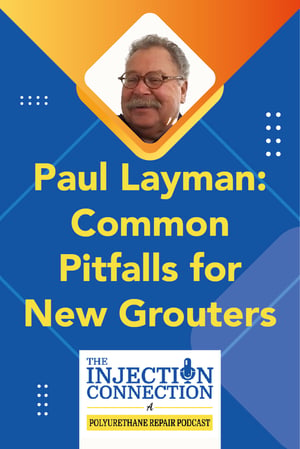 This article is an excerpt from Episode 11 of The Injection Connection, featuring a highlight from the landmark conversation between retired industry legend Captain Grout (aka Paul Layman) and his number one protégé and unofficial successor, The Grout Geek (podcast host Charlie Lerman). If you'd rather view or listen, an audio/visual version of this excerpt is posted at the bottom of the article.
This article is an excerpt from Episode 11 of The Injection Connection, featuring a highlight from the landmark conversation between retired industry legend Captain Grout (aka Paul Layman) and his number one protégé and unofficial successor, The Grout Geek (podcast host Charlie Lerman). If you'd rather view or listen, an audio/visual version of this excerpt is posted at the bottom of the article.
Charlie Lerman: What are your top, maybe one, two or three common mistakes you see when people get into grouting?
Paul Layman: I think they get overambitious and say, “We can fix this and we can fix that,” or they don't have quite the right knowledge or they don't recommend the right product. Like one of the projects we were on, they were going to recommend an acrylate. And really it wouldn't have worked well for an acrylate because the way it was designed, it was about 50% water. That's probably the thing, they overthink the job too much. It's a fairly simple process but you don't want to overthink it. Just be straightforward and just take your normal steps and work from there because the products really work well and depending where you're at you can massage these products and change them in the field if you have to, but the simpler the process, the easier it is.
Charlie: Right and that's real important. Jim (Alchemy-Spetec VP Jim Spiegel) likes to use a term, he calls it fail forward. And I like that. Fail is not necessarily maybe the right exact term for grouting but there's a lot of theory crafting where people say, “Oh, well, we know in a lab the grout does this, this and this.” And then they assume that they have lab conditions out there in the field. And you don't. You have field conditions; you don't know what's out there. So, all the theory crafting you do, until you get out and actually pump some grout and see what you've got going on, it's all guesswork at that point. I think that kind of ties into what you're saying there.
Paul: Absolutely. And then you've got the mechanics in the field and you've got some smart guys in the field and when you come up on a project, they may already have figured it out. And so, listen to the people in the field because that's where I've learned a lot of my techniques. These guys in the field are smart people, they're intelligent people and they can give you some really good guidance and little tricks. Then you can pass those on. Don't be afraid to listen to them.
View the video version of this excerpt...




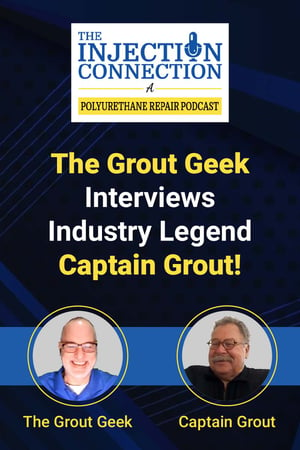 Episode 11 of
Episode 11 of 


 It has become an Alchemy-Spetec annual tradition to re-post this classic holiday season safety blog I wrote a few years ago. Merry Christmas and Happy New Year!
It has become an Alchemy-Spetec annual tradition to re-post this classic holiday season safety blog I wrote a few years ago. Merry Christmas and Happy New Year!
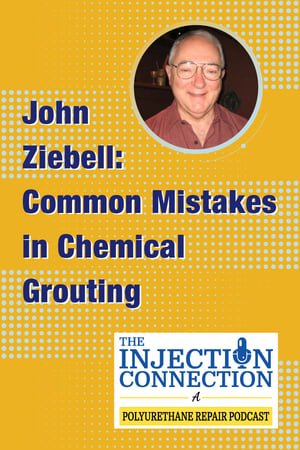



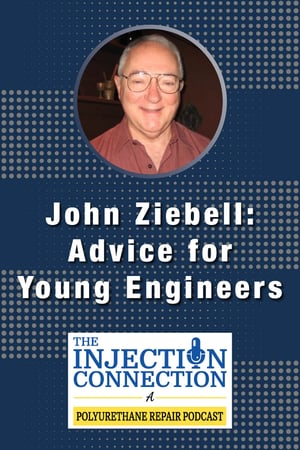

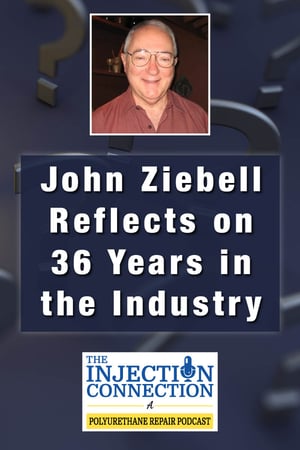 On this episode of
On this episode of 
 High-performance polyurethane concrete repair equipment is essential to the success of any contractor in this industry. For that reason, I'd like to bring the Section 179 tax break to your attention. According the
High-performance polyurethane concrete repair equipment is essential to the success of any contractor in this industry. For that reason, I'd like to bring the Section 179 tax break to your attention. According the 
 This article is an excerpt from
This article is an excerpt from 